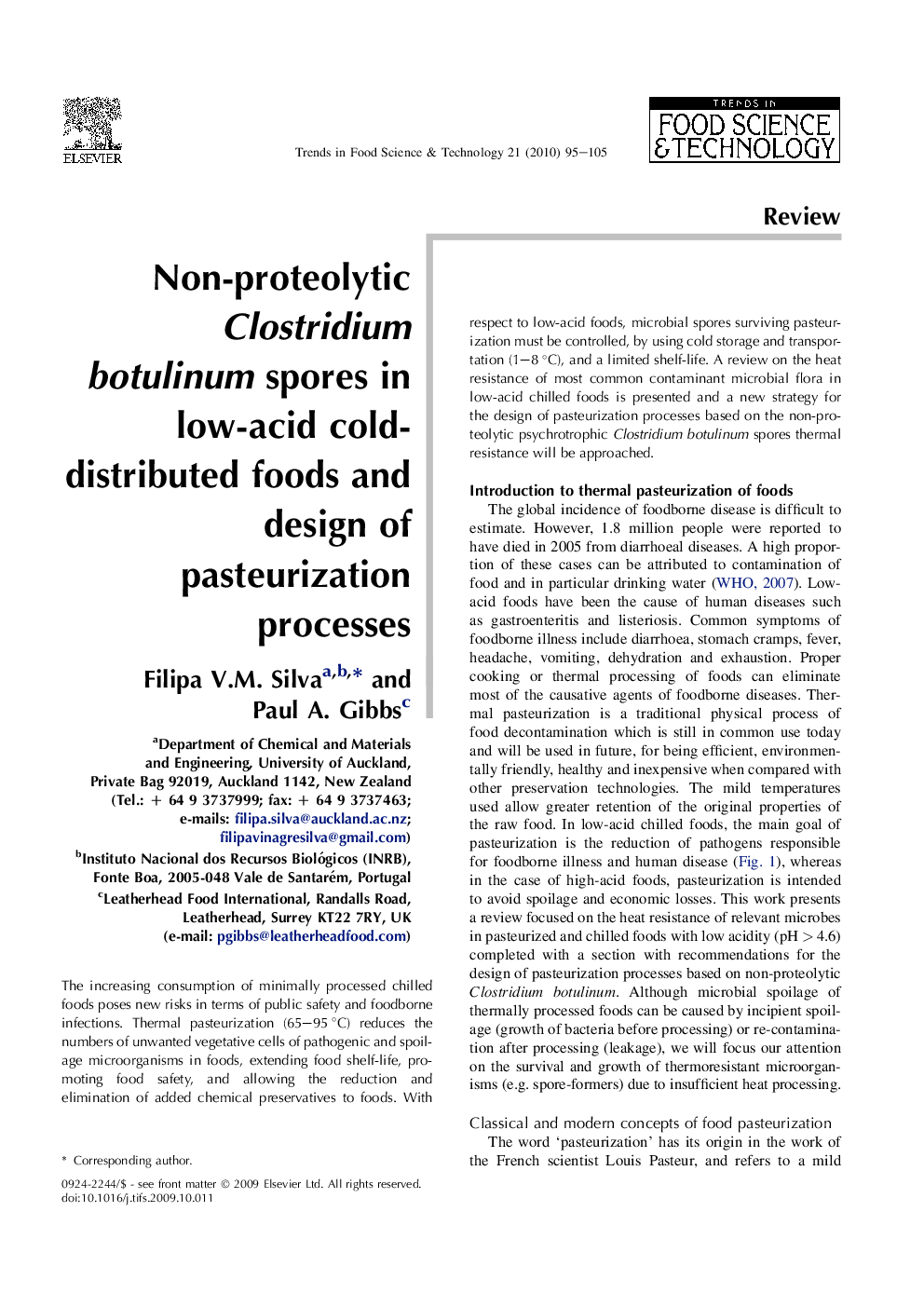| Article ID | Journal | Published Year | Pages | File Type |
|---|---|---|---|---|
| 2099184 | Trends in Food Science & Technology | 2010 | 11 Pages |
The increasing consumption of minimally processed chilled foods poses new risks in terms of public safety and foodborne infections. Thermal pasteurization (65–95 °C) reduces the numbers of unwanted vegetative cells of pathogenic and spoilage microorganisms in foods, extending food shelf-life, promoting food safety, and allowing the reduction and elimination of added chemical preservatives to foods. With respect to low-acid foods, microbial spores surviving pasteurization must be controlled, by using cold storage and transportation (1–8 °C), and a limited shelf-life. A review on the heat resistance of most common contaminant microbial flora in low-acid chilled foods is presented and a new strategy for the design of pasteurization processes based on the non-proteolytic psychrotrophic Clostridium botulinum spores thermal resistance will be approached.
